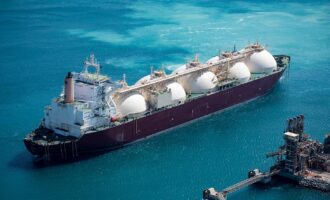
Hyundai Motor: new fuels, new challenges
The European Union (EU) has announced a 100% carbon dioxide (CO2) emissions reduction target for new light-duty vehicles by 2035. The plan, initially proposed in July 2021, was confirmed following a meeting of environment ministers from the EU’s 27 member states in Luxembourg on June 29, 2022. The decision amounts to an effective ban on the internal combustion engine (ICE) in the region. In Europe, electrification is the prescribed solution for decarbonising road transport. Despite efforts by lobby groups such as the eFuel alliance to push for a technology-neutral approach to decarbonisation, the ruling surely marks the end of an era for the ICE.
However, a substantial existing market of ICE vehicles will still require decarbonisation. Projections by market and consumer data company, Statista, indicate that 63.9% of the global car parc will still be ICEs by the end of the current decade. To achieve carbon neutrality by 2050, significant deployment of zero CO2 fuels seems inevitable, even with the EU’s EV-only strategy.
During the UNITI Mineral Oil Technology Congress in Stuttgart, Germany, in August, Andreas Kapp and Yannick Port, both experts in the field of injection systems and fuels at the Hyundai Motor Europe Technical Center GmbH, gave a presentation on the opportunities and challenges of e-fuels, as well as second-generation biofuels, as a possible complementary strategy of e-mobility to achieve the European climate target in 2050. This presentation followed a similar talk by Hyundai Motor at the SIA Powertrain & Energy – Rouen 2022 Conference in France in June.

In the presentation, Kapp emphasised the importance of renewable and sustainable fuels as a complementary and important technology to meet our 2050 climate objectives.
From a Hyundai perspective, every fuel brought onto the market must adhere to existing specifications and fit existing norms.
New fuels mean new challenges. A new fuel specification would require significant and extensive testing by OEMs and TIER 1 suppliers, including assessment of control functions, performance emissions levels, after-treatment functionality, vehicle-to-vehicle legislation testing and much more, across a broad range of vehicles. The diversification of overall powertrains makes it almost impossible to release several new fuels for niche applications. These are likely to add challenges for customers at the fuel station and impact profitability for fuel producers.
Hyundai believes that the industry in Europe can respond quickly and effectively to the need for synthetic and sustainable fuels but to manage this, fuel producers and the additive industry must work closely together to deliver sustainable fuels for the coming years.
Hyundai identified two possible candidate gasoline fuels—just as examples—that could fulfil existing requirements while improving the quality of fuels in the current specifications—methanol-to-gasoline and Fischer Tropsch gasoline.
Methanol-to-gasoline fuel could be a favourable option, but proper formulation—especially with respect to additives—needs to be considered. Fischer-Tropsch is a technology process whereby liquid hydrocarbons are produced synthetically from a mixture of carbon monoxide and hydrogen (syngas). This age-old process was first developed by Franz Fischer and Hans Tropsch in 1925.
For diesel fuels, e-Diesel such as EN590 or EN15940 and/or paraffinic diesel (e.g. hydrotreated vegetable oils) have great potential in the European context and would avoid generic research and development in totally new fuels. E-diesel is created from CO2, water and electricity with a process powered by renewable energy sources. Hydrotreated vegetable oil (HVO) is a bio-based paraffinic diesel fuel defined in the EN 15940 specification made by the hydrocracking or hydrogenation of vegetable oils. EN 15940 fuels can be used as a drop-in replacement for fuels designed to run on the EN 590 ULSD (ultra-low sulphur diesel) diesel fuel specification.
HVO offers a way to instantaneously decarbonise the existing diesel fleet and at the same time improve air quality and noise emissions.
Pure HVO (HVO 100) is available in nine European countries including Belgium, Denmark, Finland, Estonia, Latvia, Lithuania, the Netherlands, Norway and Sweden. It is blended without restriction in diesel in many Western European countries—so long as it complies with existing specifications. Although, Kapp noted the “small problem” that Germany is not currently accepting EN 15940.
The use of food crops always raises the contentious “food or fuel” debate. Recent reports have also suggested that the German government is working on a proposal to phase out the use of biofuels produced from food and feed crops by 2030. Time will tell whether this becomes a critical item.
Hydrogen has strong potential for powering vehicles either in a fuel cell delivering electricity output or in a powertrain using a more-or-less conventional ICE. Hydrogen burns efficiently in a combustion engine and can provide a possible intermediate solution. Although, it is a more likely solution in heavy-duty transportation than in the passenger fleet, with particular application as an off-road fuel. Discussions on hydrogen use in transportation are currently occurring at a European level, says Kapp.

Port provided insights into the opportunities and the challenges of e-Fuels and second-generation biofuels.
EN15940 HVO fuels showed emission benefits when compared to conventional EN 590 diesel fuel. Testing revealed a reduction in HC + NOx—the sum of the hydrocarbon and oxides of nitrogen exhaust emissions—CO2 and carbon monoxide (CO). A dedicated EN15940 (HVO) calibration can enable up to a 10% CO2 benefit even under Tank-to-Wheel consideration. This offers a significant reduction in tailpipe emissions for existing fleets in current models and future applications —such as the looming Euro 7 specification.
By designing the physical and chemical properties of the fuel, there is even more potential emission and CO2 benefit of fully synthetic fuels for gasoline, such as methanol-to-gasoline. Hyundai testing demonstrated a potential CO reduction of 25-30%, HC reduction of 40-50% and a drop in particulate number (PN) at +20°C using the Worldwide Harmonized Light Vehicles Test Cycles (WLTC). A 30-40% CO reduction and 50-60% HC reduction were evident at -7°C WLTC.
Low fuel quality, on the other hand, can result in the delayed opening and closing of gasoline direct injection (GDI) injectors, causing poor fuel atomization and spray formation, and fuel/air mixing. Poor diesel fuel quality can lead to internal diesel deposits. Such deposits were identified in bench testing with higher exhaust gas temperatures and increasing friction in moving parts (sticky deposits). This can lead to higher emissions and rough engine operation.
Corrosion in diesel injector nozzles and spray holes is another potential impact. Low-temperature combustion and free water in combination with critical nozzle material quality may lead to corrosion effects. Fuel composition and quality is also a driver of corrosion such as in fuel injection systems. “Best fitting fuel quality (and additives) are required as well as a suitable material definition and temperature management,” says Port. Hydrogen internal combustion engine development must also focus on corrosion items due to the high amount of H2O in the exhaust gas, he says.
Official statements in the EU point to e-mobility as the long-term transportation solution. Yet, the speed of deployment remains uncertain. Synthetic, sustainable fuels can contribute positively to reducing CO2 emissions if the market introduction can occur fast and broadly. Hyundai’s view is that replacing fossil fuel components with sustainable, synthetic, norm-compliant components, whether based on non-food biomass or renewable electricity, is mandatory.
Intelligent use of fuel and additive chemistry is necessary to ensure the long-term market success of fuels, regardless of whether these are first- or second-generation biofuels, biomass or electricity-based. Like many other stakeholders, Hyundai shares the opinion that there is no silver bullet for meeting the future challenges of affordable mobility on a global level other than considering all possible energy sources. Fuels and ICEs will remain important for the coming decades.







